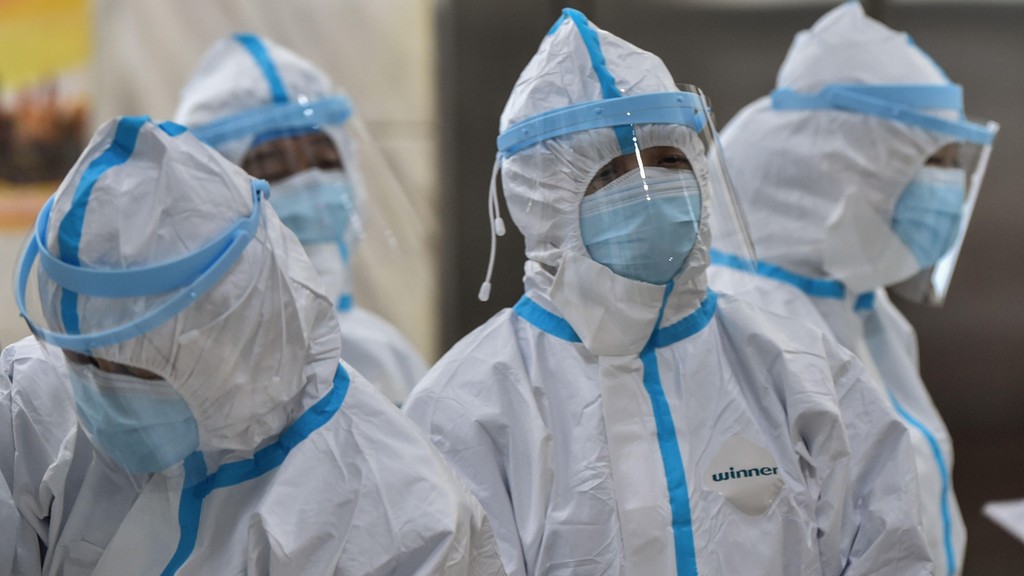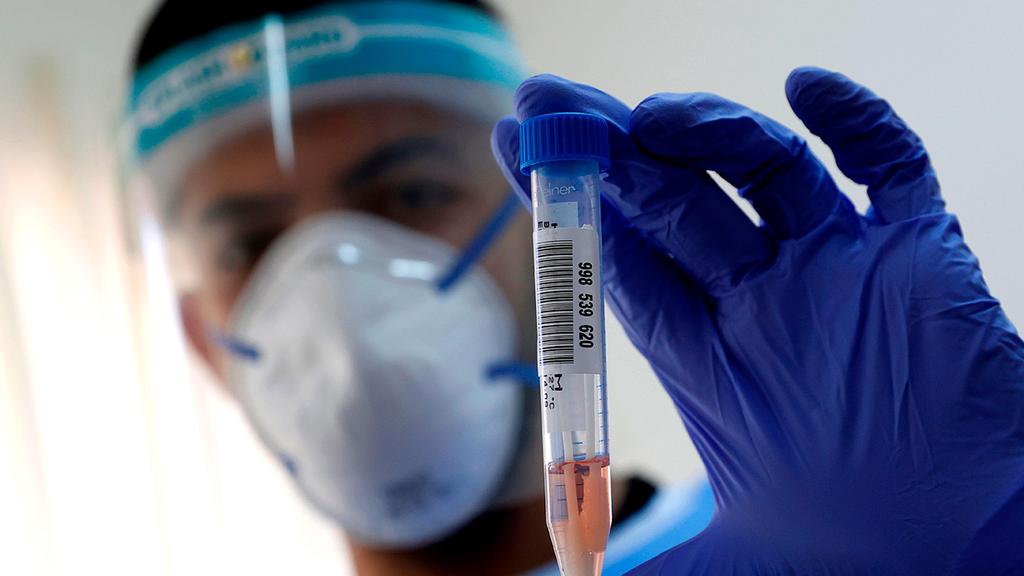The Health Ministry's datebook of scheduled meetings, made public Tuesday following a petition of a rights' group, reveals Israel's lack of preparedness for coronavirus and disregard for the crisis when the pandemic first erupted.
The datebook belonging to former Health Ministry Director General Moshe Bar-Siman-Tov was published following an administrative appeal to the Supreme Court by The Freedom of Information Movement.
6 View gallery
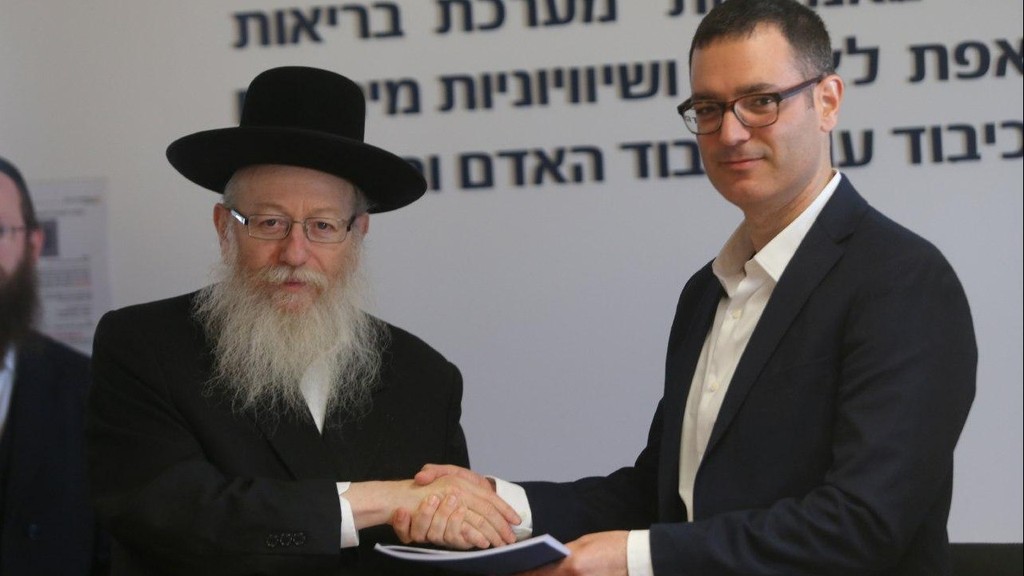

Former Health Minister Yaakov Litzman and former Health Ministry Director General Moshe Bar-Siman-Tov
(Photo: Alex Kolomoisky)
It reveals that senior Health Ministry officials held their first meetings to discuss the coronavirus outbreak one month after initial reports of the novel virus emerged from China, documents revealed. Most strikingly, then-Health Minister Yaakov Litzman did not attend that meeting.
The first reports by the World Health Organization's (WHO) representative to China about the mysterious new virus in Wuhan, emerged on December 31, 2019. By January 3, there were already 44 cases, 11 of which were severe.
The WHO released an official report about the virus only when Wuhan was already under lockdown and health experts around the world began following the situation in China.
Over the following days, more patients were identified in Asia but as the datebook shows, the Health Ministry had not yet held any discussion concerning the need to prepare for the COVID-19's outbreak in Israel.
It was not until January 24 that a first conference call on the subject was held, attended by Health Ministry Deputy Director-General Prof. Itamar Grotto, and former Head of Public Health Services Sigal Sadetsky. A second discussion was held that same week, and on January 27 a meeting was convened at the Health Minister's main office.
Three days after that meeting, Litzman decided to ban entry of all non-Israelis from China.
Bar-Siman-Tov's datebook reveals that only two weeks after the first COVID-19 case was reported in the U.S. - on February 3 - did the former director general held his first meeting with Prime Minister Benjamin Netanyahu.
6 View gallery
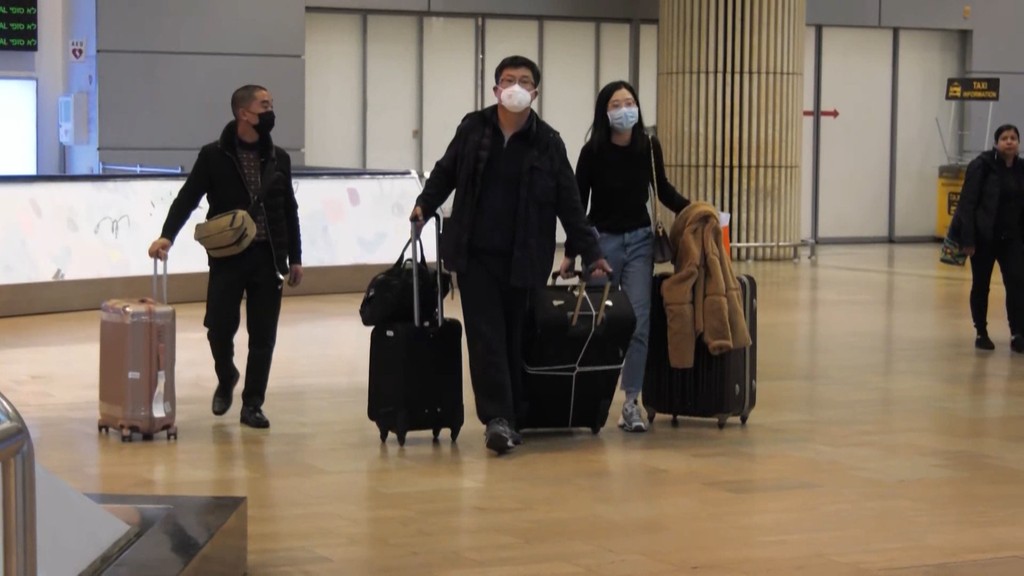

Chinese tourists denied entry at Ben Gurion Airport in February
(Photo: Eli Mendelbaum )
Another brief meeting on the matter was held a day later, attended by the prime minister and senior health officials. Litzman's datebook also revealed no other discussions had been held with Netanyahu before February 2.
In fact, the information now made public in the diaries indicates the ministry failed to understand the gravity of the outbreak until mid-February, when more meetings on the subject were scheduled.
The datebook also shows that Grotto, who is an epidemiologist and a member of the WHO's executive board as a representative of Israel, was not invited to attend many of the initial meetings held at the ministry, due to his contentious relationship with Bar-Siman-Tov.
6 View gallery
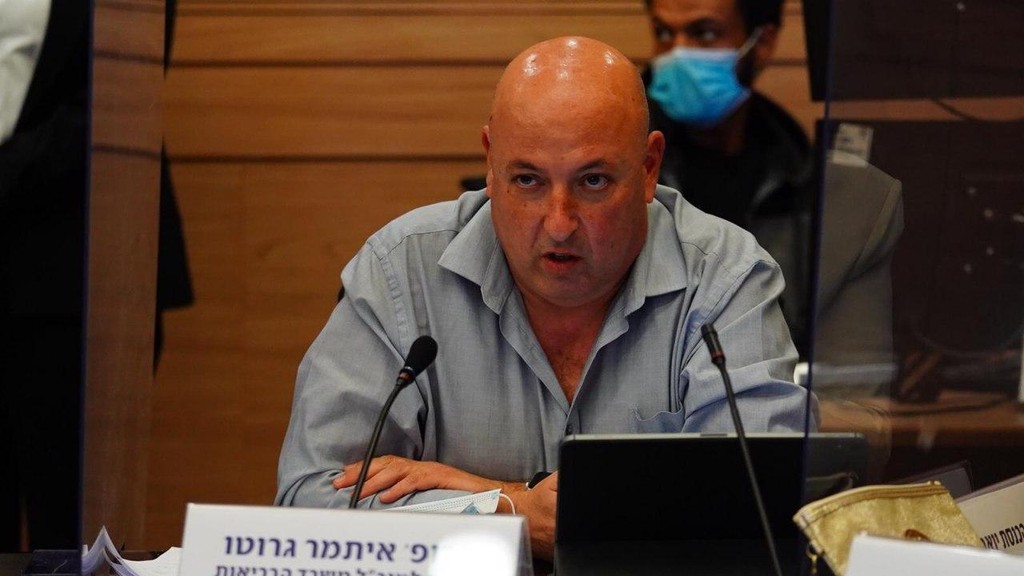

Senior Health Ministry official Professor Itamar Grotto briefs Knesset on coronavirus
(Photo: Knesset PR)
Grotto was sidelined, with Bar-Siman-Tov and Sadetsky making the majority of the decisions. It wasn't until the peak of the first wave in late April, when Grotto assumed a greater role.
Litzman's diary is less transparent than that of Bar-Siman-Tov, with many of his meetings appeared to not have been reported at all. Still, a partial picture of his engagement in the crisis shows he was not entirely involved.
Starting January 24 and all through February, the minister had 167 recorded meetings and events (not including travel), with over 50 of them described as private engagements or events of political nature.
While the country was bracing for the arrival of COVID-19, Litzman participated in no less than 30 family functions, including weddings, engagement parties, Bar Mitzvah celebrations and condolence visits. Only 10 meetings on the coronavirus were scheduled during that time.
6 View gallery
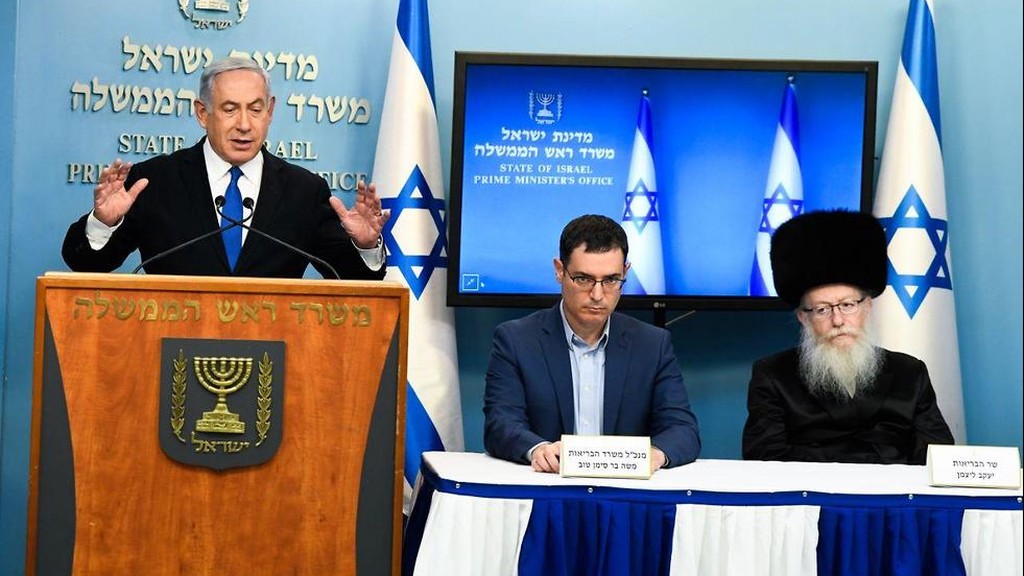

(L-R) Prime Minister Netanyahu, DG of Health Ministry Bar-Siman-Tov and Health Minister Litzman during coronavirus briefing
(Photo: Shalev Shalom)
As he was preparing to leave his position as health minister, Litzman described actions taken in the early days of the pandemic as "too much panic," and said the prime minister gave in to Bar-Siman-Tov's fearmongering, even though he was only partially involved in managing the crisis.
Towards the end of Bar-Siman-Tov's tenure, his schedule indicated he was mostly occupied by appearances in the media. In addition to ongoing briefings and discussions on particular aspects of the pandemic, including the reopening of schools, the director general chose to concentrate on the situation in medical labs and on efforts to ensure Israel receives vaccines when they become available.
On the issue of testing and tracing, which was perhaps the most crucial, Bar-Siman-Tov held only two meetings during March and none in May and June.
Litzman's office said in response the minister was briefed on all coronavirus-related meetings and participated personally in many of them. When unable to attend because of scheduling conflicts, Litzman joined the discussions remotely, therefore many of those events were not recorded in his datebook.
The Health Ministry said Israel was among the first nations to identify the risk of coronavirus and act resolutely to prepare for the pandemic.
"The WHO said only late in January that human to human contagion had occurred, and a pandemic was not declared until the middle of March," the ministry said in a statement.
"Israel's quick response that included banning entry to non-Israelis and the early implementation of social distancing regulations resulted in effective control of contagion in its first wave. It must be noted that very little early information about the virus was available at the time," the ministry added.


